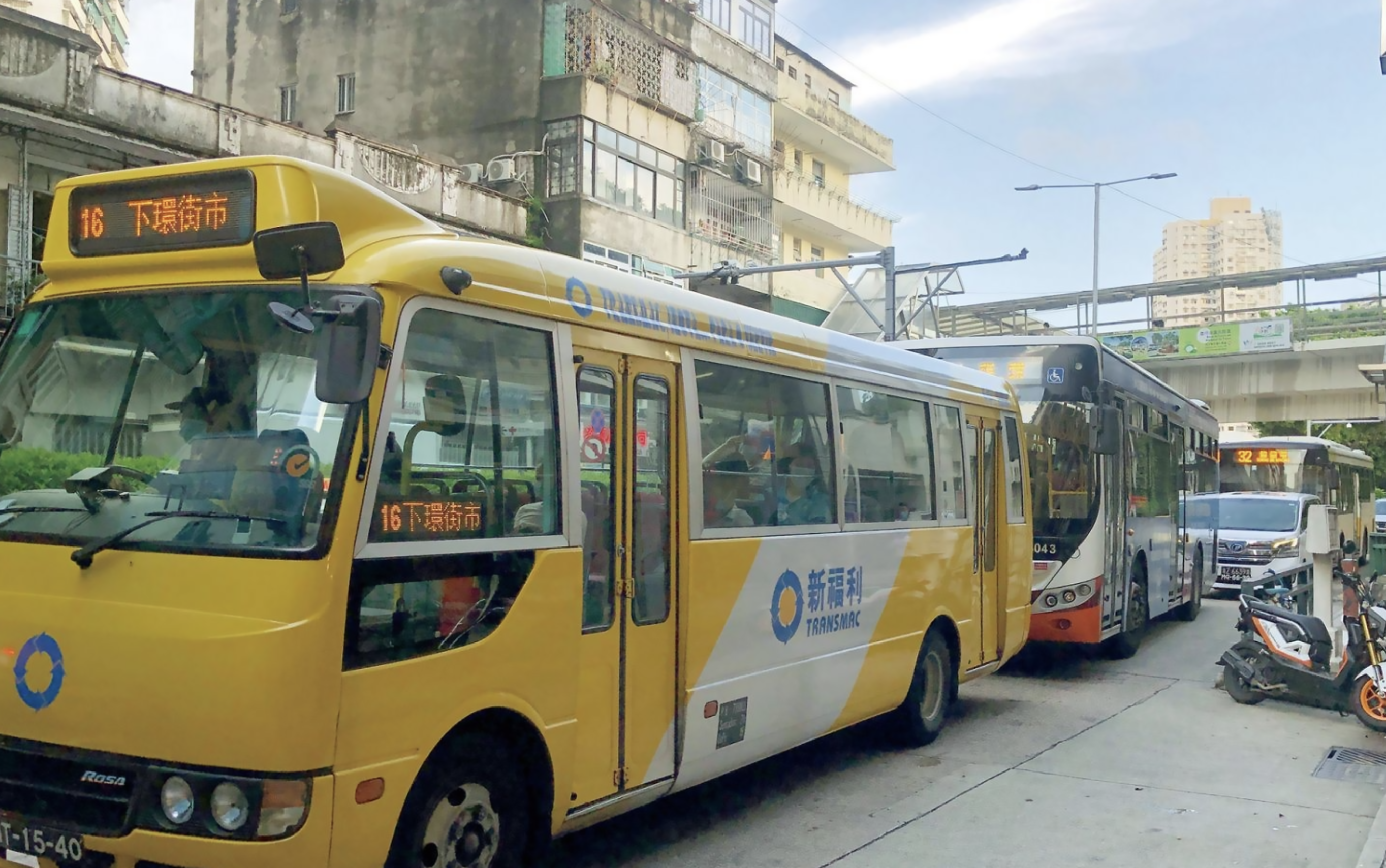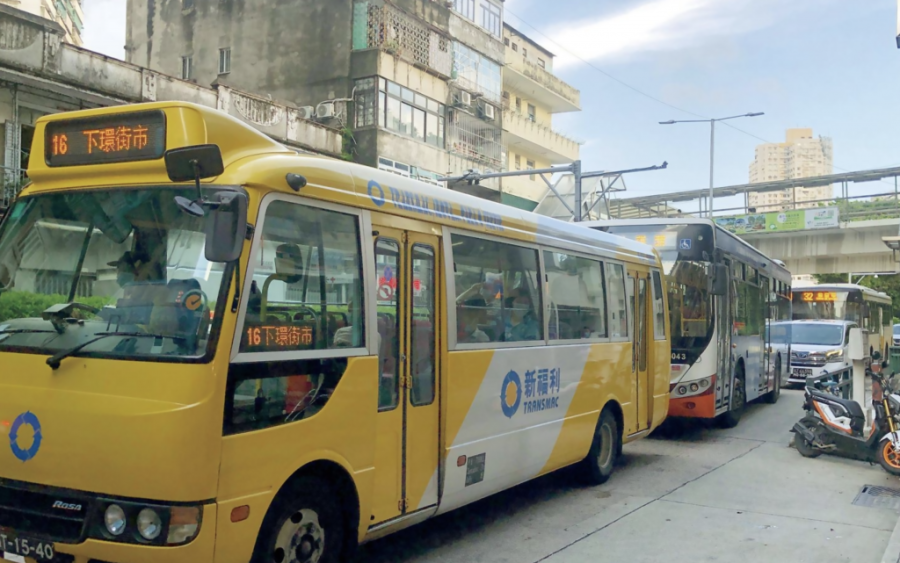Secretary for Transport and Public Works Raimundo do Rosário said on Thursday that the government will sign new service contracts with the city’s two public bus operators – Transmac and TCM – later this month or next month, according to which all their buses will have to be eco-friendly by 2024.
The two bus operators’ six-year-long new contracts will take effect on 1 January next year. No public tender will be held.
The policy secretary also said that according to the new contracts, the government’s financial support for the two bus operators will comprise two parts. The first part covers fare subsidies for pupils, students, senior citizens and residents with disabilities, for which the government expects to pay about MOP 300 million in total every year, while the second part’s financial support will be capped at around MOP 600 million in total every year in the first three years of the six-year contracts, which will expire at the end of December 2026.
In the past few years, the government has paid the two public bus operators around MOP 1 billion in financial support every year.
Rosário made the remarks while speaking to reporters after attending a closed-door meeting of the legislature’s Follow-up Committee for Land and Public Concession Affairs, in which two government officials – Rosário and Transport Bureau (DSAT) Director Kelvin Lam Hin San – briefed the members of the committee about its ongoing negotiations with the two bus companies about their future contracts.
The two bus operators’ current service contracts initially expired in late July 2018 when the government renewed them for another 15 months as it said it would need more time to negotiate with them about their future new contracts. Upon the expiration of the 15-month extension in late October last year, the government renewed the two bus operators’ contracts again for another 14 months as it had still not been able to reach a consensus with the duopoly about their future contracts. Following the 14-month extension, the two operators’ current contracts will expire at the end of December this year.
Under the current bus fare system, passengers pay MOP 6 for all rides each time when paying with cash. Passengers with a Macau Pass card pays MOP 3 for general routes and MOP 4 for express routes. Students and pupils – regardless of being local residents or non-locals – with their version of Macau Pass cards enjoy a 50-per cent discount of the fares. Senior citizens and disabled people – only Macao residents – with their versions of Macau Pass cards do not need to pay.
Speaking to reporters on Thursday, Rosário said that the new model of the government’s financial support for the two bus operators is based on the government’s spending on the city’s public bus service of MOP 1.04 billion last year.
According to Rosário, the government will pay around MOP 300 million for fare subsidies for pupils, students, senior citizens and residents with disabilities every year as “a duty to fulfil its social responsibility, while the government’s spending on fare subsidies for other passengers will be capped at around MOP 600 million every year in the first three years of the two bus operators’ six-year contracts.
“The financial support [of about MOP 600 million every year during the first three years] can only be reduced and cannot be raised,” Rosário said, adding that the two bus companies can only apply for an increase in the government’s financial support after the first three years.
Rosário also said that the new contracts will require the two bus operators to gradually replace their current fleets with eco-friendly buses – such as electric ones and those powered by natural gas. According to the new contracts, half of the two companies’ public buses that only travel in the peninsula and do not cross the three bridges must be eco-friendly ones by 2022, while all the public buses must be eco-friendly ones by 2024, Rosário said, underlining that the government will not pay any subsidies for the two companies to buy eco-friendly buses.
Rosário said that public buses in Macao have a legal depreciation period of eight years, pointing out that if they pass an inspection by the Transport Bureau thereafter they could still be used for private purposes. He pointed out that the government’s 2024 requirement of eco-friendly buses only refers to public buses run by the two companies, not those that both run in the private sector.
(The Macau Post Daily/Macau News)
PHOTO © Exmoo






